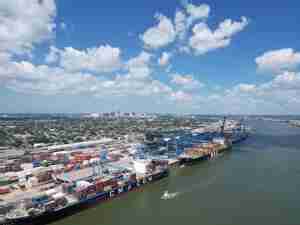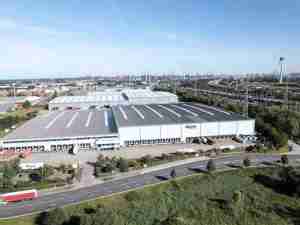- Oil and oil products maintain high level, with decreases mainly occurring in coal, ore and containers
- Market share increased by 0.3 percentage point
- Expected throughput for full year 2016 close to 2015 total
- Turnover Port of Rotterdam Authority virtually unchanged
- Net result €96.6 million; €26.0 million lower due to one-time interest rate swap cancellation
Port of Rotterdam throughput decreases by 3 percent
posted by AJOT | Jul 21 2016 at 07:35 AM | Ports & Terminals
Compared to a record first half result 2015 (+6.8%)









